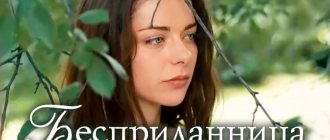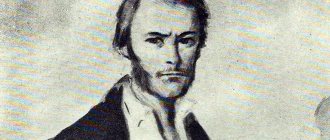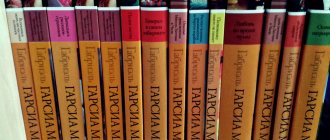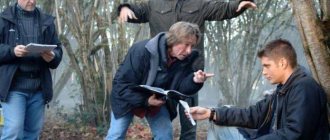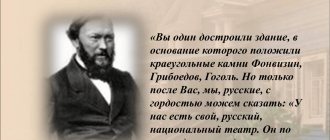In Russian drama of the twentieth century, the last work of Anton Pavlovich Chekhov created a real sensation. The reader perceives the creation based on his own worldview. Some see deep psychological meaning in it. From time to time it is regarded as a socially oriented work. The way the heroes relate to the cherry orchard characterizes life in Russia from different sides.
The play was written in 1903. Anton Pavlovich tried to convey the emotions and feelings of the characters as much as possible. He knew firsthand about the material difficulties of that time. The writer's father sold his estate. He needed to pay off his debts. This helped the author clearly convey the attitude of the comedy heroes to the garden.
The play talks about the difficulties of adapting to a new era, the conflict between children and parents. The writer classified “The Cherry Orchard” as a comedy opus, but, according to critics, the story is tragic and dramatic in nature.
The attitude of the heroes towards the cherry orchard - table
The table briefly describes the characters' attitude towards the cherry orchard. The characters experienced certain feelings and emotions from the sale of the estate.
| Ranevskaya | Sincerely loves plants and trees. Love is fascinated by the beauty and pristine nature. Losing a plot is tantamount to losing childhood memories. |
| Gaev | Being a wasteful person, Gaev cannot fully understand that the family nest should be sold at auction. He does not perceive the cruel reality. Continues to live with childhood dreams and illusions. |
| Petya and Anya | For children, an estate is something beautiful, fantastic, extraordinary. They associate it with the future, a happy life, and unprecedented success. |
| Lopakhin | The estate is a cherished dream for him. His main goal is material priorities. The hero always dreamed of owning his own lands. |
Summary
Action 1
A room on the estate that everyone calls the nursery.
Ermolai Lopakhin and Dunyasha are waiting for Ranevskaya and her family to return from abroad. Ermolai Alekseevich warmly remembers Ranevskaya and reflects on his own fate: his father was a simple man, but he is dressed nobly. However, I did not receive an education. Lopakhin reproaches Dunyasha for behaving like a young lady - it’s not appropriate.
Ranevskaya arrives with Anya and servants (Charlotte Ivanovna, Yasha). Lyubov Andreevna and Anya are very happy to return home. Anya perks up when she learns that Petya Trofimov is now on their estate. Later, Petya, in love with Anya, appears.
From the conversations it immediately becomes clear that Ranevskaya is ruined. She has already sold her overseas property. This estate will also be sold for debts in the near future. Anya and Varya are very worried, but Lyubov Andreevna only examines everything and warmly remembers the past. Ermolai Lopakhin comes up with a proposal that can save Ranevskaya: the garden should be cut down, and the land should be divided into plots and rented out as dachas. Ranevskaya and Gaev are categorically against it: for them, the cherry orchard is a source of pride and the heritage of their family. Lopakhin asks to think about the proposal and leaves. Gaev says that perhaps the rich aunt will send money - in general, somehow it will work out.
Act 2
The area near the old church, from where you can see the cherry orchard and the city.
Dunya, Yasha, Epikhodov and Charlotte Ivanovna are walking. Dunya is in love with Yasha, Yasha is indifferent to her and even shuns her, Epikhodov (who sincerely loves Dunyasha) is extremely upset and is even thinking about suicide.
Lyubov Ranevskaya, Leonid Gaev and Ermolai Lopakhin arrive. Lopakhin asks what Lyubov Andreevna decided regarding the rent. Ranevskaya, as if not hearing, talks about her own things - scolds herself for squandering and immediately gives a gold ruble to a random passerby. Gaev conducts abstract conversations about the benefits of the railway. The sound of a broken string is heard.
A money transfer is expected from a rich aunt, but these funds are not even enough to pay off debts. But they don’t even want to think about renting out the land: that’s vulgar. Lopakhin is already angry because of their impracticality. Ranevskaya reproaches him for his lack of education and down-to-earthness and recommends marrying Vara. Gaev says that he was offered a job at a bank, but Lyubov Andreevna discourages his brother: he has nothing to do there. Firs arrives. He remembers the past with nostalgia. Varya, Petya and Anya appear. Everyone is talking (in fact, each about his own). When everyone leaves and Petya and Anya are left alone, Anya admits that she doesn’t value the cherry orchard so much and wants to think about the future.
Act 3
Living room of the Ranevskaya estate. Evening. August 22.
Music plays, everyone dances. Only Gaev and Lopakhin are missing: the auction is taking place right now, Ranevskaya’s estate is being sold.
For some reason, everyone hopes that Gaev will have enough money sent by his aunt to buy the estate, although it is absolutely clear that 15 thousand is not enough. Charlotte Ivanovna shows tricks. Yasha tells Ranevskaya that they need to go to Paris - everyone here is too simple and uneducated.
Ranevskaya is really going to return to France to her beloved - he wrote to her. Lyubov Andreevna wants to quickly arrange the fate of her daughters: she plans to marry Varya to Lopakhin, and Anya to Petya Trofimov. Among those present there is a conversation about love. Ranevskaya insists that for the sake of love you can do any act, reproaches Petya that he is “above love.” Petya reminds Lyubov Andreevna that she is striving to meet with a man who has already deceived and robbed her.
Lopakhin and Gaev enter. Gaev is crying. Lopakhin can barely hide his joy: the estate has been sold, and he is its owner! Lopakhin wants to immediately start cutting down the garden in order to rent out the land as soon as possible.
Lyubov Andreevna is crying, Anya is trying to console her. Varya throws away the keys to the estate and leaves.
Act 4
A children's room, but this time empty: all things are packed and waiting in the wings.
From the street you can hear that the garden is already being cut down. Lopakhin brings champagne to see Ranevskaya off with her family. Nobody wants champagne: everyone is sad. Everyone leaves for Kharkov together, and from there Lyubov Andreevna and Yasha will move to Paris, Anya will go to study, Petya will go to Moscow. Leonid Andreevich finds a place for himself in the bank. Dunya will go to work as a housekeeper. Ermolai Lopakhin promises to take care of Charlotte Ivanovna and Epikhodov. Firs fell ill, and, according to Yasha, he was sent to the hospital.
Simeonov-Pishchik comes in. Oddly enough, he returns the debt: it turns out that Pischik leased out his lands. Ranevskaya once again tries to bring Lopakhin together with Varya, but Lopakhin talks politely and does not make an offer. Everyone says goodbye to the house, closes it and leaves.
Firs appears: they simply forgot about him. Firs understands this, but is not angry with the owners.
The sound of a broken string is heard. You can hear the cherry orchard being cut down.
Ranevskaya’s attitude to the cherry orchard
Quotes from the play convey Ranevskaya’s attitude to the cherry orchard as accurately as possible. The author has endowed all the characters with a certain story that is connected with the estate. For the heroine it is:
- Serenity;
- The purity of aromas that intoxicate the mind;
- Childhood;
- Sincerity;
- Family happiness;
- Lightness of Being.
She is ready to stay with the garden forever, even if it is sold at auction. The image of a middle-aged, attractive woman evokes positive emotions in the reader. She has an adopted daughter, Varvara, and her own daughter, Anna. The writer characterizes Ranevskaya's character negatively. From the work we can conclude that for Chekhov this woman:
- Characterized by infantilism;
- Likes to suffer, worry, causing self-pity;
- Does not appreciate the goodness of people around him;
- Incapable of sincere love and devotion.
She left for Paris when fate in the family nest did not work out. Here she finds a companion, but this does not bring her happiness. Initially, the beloved fell seriously ill, and then ruined the once wealthy lady. This brings her back to her native land, but the plot is already being sold at auction. In the history of Chekhov, Ranevskaya is represented by:
- A loving mother to her daughters;
- An educated woman, accustomed to a life of abundance;
- A generous, kind lady, not adapted to life.
Despite her attachment to the estate, the heroine quickly recovers from the loss, having received a sufficient amount of money for her usual life.
How Gaev feels about the cherry orchard
The second main character of the play is Gaev. He is Ranevskaya’s brother, several years older than her. The writer characterizes the man as an educated but irresponsible person. He spends a lot of time and money in gambling establishments and has no family. A man’s priority is his personal interests. He is used to enjoying life without thinking about sources of income. He is helped by his niece and an elderly footman. Hero Features:
- He is not aware of the problem, he sincerely does not understand the reasons for selling the garden;
- The man is not used to savings and responsibility;
- For a young man who loves gambling, caring for loved ones is alien.
Gaev’s attitude towards the cherry orchard is similar to Ranevskaya’s feelings. He experiences the loss of his family nest much harder than his sister. Until the last moment, the brother hoped that he would cope with the problem and buy the estate. However, he failed to do this. The character feels guilty and struggles with melancholy. Most of the information about the auction comes from the delighted Ermolai, who bought the property. Gaev refuses to comment on the situation, preferring to remain in the shadows.
Characters
Lyubov Andreevna Ranevskaya is a ruined aristocrat, a romantic and unearthly personality. Having become a widow early and having lost her son, Lyubov Andreevna leaves to join her lover abroad. In fact, she no longer has money: Ranevskaya is not used to saving, and her lover tried to extract all the funds from her.
Leonid Andreevich Gaev is Ranevskaya’s brother, attentive, smart, but completely unable to find himself in his new life.
Ermolai Alekseevich Lopakhin is a young man from a peasant background. Thanks to his active mind and intelligence, he became a millionaire. Ermolai Alekseevich is a spiritual, subtle person, but his commercial streak is stronger than his artistry.
Petya Trofimov is a dreamer, a “shabby gentleman”, in the past he was the teacher of Ranevskaya’s deceased son Grisha. He comes from the nobility, but has nothing. At the same time, he dreams of universal happiness, prosperity and a sky in diamonds. The complete opposite of Lopakhin.
Anya is the daughter of Lyubov Ranevskaya. A naive, enthusiastic girl. She is in love with Petya Trofimov and also dreams of universal happiness.
Varya is the adopted daughter of Lyubov Andreevna, manages her estate. A practical, down-to-earth girl. Everyone wants to marry her to Lopakhin, but Lopakhin is not interested in Varya.
Simeonov-Pishchik is a bankrupt landowner. Unlike Ranevskaya, she happily accepts the offer to rent out her plot of land.
Yasha is a lackey. An arrogant scoundrel who has no respect for his mother or his masters. All his dreams boil down to going abroad.
Dunyasha is a maid, a young frivolous girl. In a sense, her image is a parody of Lyubov Ranevskaya.
Semyon Panteleevich Epikhodov - aka “Twenty-two misfortunes”. The clerk, an extremely unlucky guy, always drops and breaks everything. In a sense, he is Gaev’s double (Leonid Andreevich’s disorder is perceived as a noble sad fate, but Epikhodov, unhappy to the point of stupidity, helps to see a farce in these sufferings). In love with Dunyasha.
Firs is a footman on the Ranevskaya estate, very old, almost deaf. Sincerely loves the owners, the estate and the cherry orchard. Symbolizes long past times - “when everything was different.”
Charlotte Ivanovna is a governess and circus performer. She introduces an element of farce just by her presence (destinies are destroyed, and she juggles).
The attitude of the heroes towards the cherry orchard - quotes
The attitude of the characters in the play towards the cherry orchard is clearly conveyed in the following quotes:
- If you then rent out the cherry orchard for dachas, then you will have at least twenty-five thousand a year in income - Lopakhin;
- Cherries are born once every two years, and no one buys them either - Lopakhin;
- Why don’t I love the cherry orchard as much as I used to - Anya;
- Garden - hope for the future - Anya;
- We will plant a new garden, more luxurious than this - Anya;
- All Russia is our garden. The earth is great and beautiful, there are many wonderful places on it - Trofimov Peter;
- If there is anything interesting, even wonderful, in the entire province, it is only our cherry orchard - Lyubov Ranevskaya;
- There is no need to deceive yourself, you need to look the truth straight in the eyes at least once in your life - Trofimov;
- I always have my own and other people’s money, and I see what kind of people are around me. You just need to start doing something to understand how few honest, decent people there are - Lopakhin.
History of creation
“The Cherry Orchard” is the final work of Anton Pavlovich Chekhov. It was originally intended to be a light-hearted, frivolous comedy. The plot was supposed to be the sale of the family estate for debts.
But as the creation progressed, it became clear: neither fun nor carefree would work here. Chekhov saw too many such stories in person, touched too many tragedies. In the new century, new people appeared - tenacious, assertive, strong. The process of impoverishment of the nobles was simply total: not accustomed to caring about tomorrow, they simply lived out their fortunes without thinking about the future.
Chekhov worked towards this play all his life. He checked the images and all the lines down to the smallest detail, corrected and rewrote his “The Cherry Orchard”. Some believe that Chekhov created a drama, others see tragicomism in The Cherry Orchard. Be that as it may, “The Cherry Orchard” has long and firmly entered the repertoire of the most famous theaters.
Issues:
- social issues (change of social strata, idleness of the nobles, the possibility or impossibility of building a new life);
- psychological issues (characters’ experiences);
- historical issues (change of times, generations, values);
- the path of Russia (the cherry orchard as a metaphor for Russia).
The meaning of the name: the cherry orchard is an image that connects two eras: the dying noble class and new people - tough, practical, economical. For both, the cherry orchard is desirable, even if they see it differently (the former as an ideal and a piece of beauty, the latter as capital and a source of development).
Literary direction: realism.
Literary genre: comedy.
Genre features: it is quite difficult to understand why Chekhov insisted that “The Cherry Orchard” is a comedy, because outwardly it is a drama: people’s lives are ruined, no one hears anyone, everyone behaves stupidly and inappropriately. One could say that this is a philosophical comedy: a view from above on a dramatic human situation that allows us to see the paradoxes of our own behavior and the humor of what, from a close distance, seemed sad. The world of “The Cherry Orchard” seems to be filled with distorting mirrors: the heroes’ generosity turns into extravagance, education into empty chatter. Next to the main characters there are their doubles, allowing you to see these heroes in a different light (a striking example would be a truly negative character - the lackey Yasha, who is a distorted reflection of Ermolai Lopakhin).
